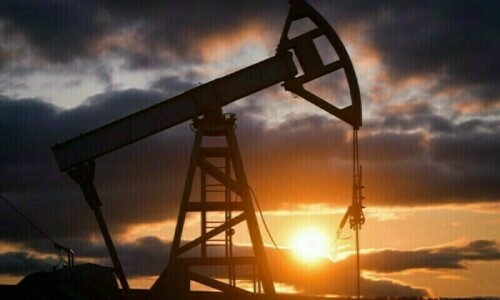SAUDI oil giant Aramco has raised $25.6 billion in the world’s biggest initial public offering, sources said.
The oil-rich kingdom has put a value of $1.7 trillion on Aramco as it prepares to sell 1.5 per cent of the company to fund its “Vision 2030” economic transformation plan.
But why is Saudi Arabia, which has reaped trillions of dollars from its vast energy deposits, having to sell off a piece of its economic crown jewel to position itself for a post-oil future?
Isn’t Saudi Arabia wealthy already?
Despite its almost unimaginable oil wealth, Saudi Arabia’s finances have sagged along with the price of crude, causing its budget deficit to balloon.
It still has around $500bn in fiscal reserves run by the country’s central bank and some $250bn managed by the public investment fund (PIF), the kingdom’s main investment vehicle.
“It’s a fact that Saudi Arabia is gradually running out of money,” General David Petraeus, who is currently chair of the KKR Global Institute, said in a November television interview in Abu Dhabi. “The bottom line is that they need the money, they need that outside investment that is crucial to delivering ‘Vision 2030’.”
Another factor driving the launch could be young ruler Crown Prince Mohammed bin Salman’s desire to “have a flashy project to show he is reforming the country”, he said.
Pressing ahead with the Aramco listing, despite it falling short of the hoped-for $2 trillion valuation, is more about “following through with a political statement by the crown prince”, said Karen Young from the American Enterprise Institute.
“It is about making a debut to the international investor community, and to legitimise the state to a global audience of peers.”
How will the funds be used?
Since Prince Mohammed came to power, Saudi Arabia has unveiled plans for a series of “giga projects” that will soak up tens of billions of dollars, but also hopefully bring investment and thousands of jobs.
Those visions include the Red Sea Project, to be built across an archipelago of 90 islands off the Saudi port city of Jeddah, and stretch into nearby deserts and mountains.
NEOM, a $500bn futuristic mega city, is planned on the northern Red Sea coast, complete with flying taxis and talking robots.
And last year, construction of the Qiddiya “entertainment city” was launched near Riyadh, with the blueprints including high-end theme parks, motor sport facilities and a safari area.

Why is foreign investment scarce?
Saudi Arabia was hit by high levels of capital outflow in 2017 — the year that Prince Mohammed spearheaded an anti-corruption campaign that led to the arrest of hundreds of elite princes and businessmen.
The shock move cemented his rule, but also made international investors nervous.
“The regional political risk climate, Saudi foreign policy choices and repression of political dissent have all likely dampened investor sentiment,” Young said.
Riyadh has also faced criticism over the murder of journalist Jamal Khashoggi inside the kingdom’s consulate in Istanbul in 2018, as well as over an ongoing crackdown on activists.
Increased tensions between Saudi Arabia and arch-rival Iran after a string of attacks on oil tankers and missile strikes on Aramco oil infrastructure have also cast a pall.
Will the IPO give Aramco more credibility?
Aramco is a notoriously secretive company, but it was required to lift the lid on its operations in the IPO prospectus, which listed its risks and strengths. However, it appears to have stepped away from plans for a second listing on a foreign stock market.
“In preparing for a planned international IPO, Aramco has already become a lot more transparent than it was, which wasn’t hard to do,” said Neil Partrick, London-based Middle East analyst.
“I imagine that Aramco may have to go further in terms of transparency though if a successful domestic launch encourages resumed plans for an international one.”
Will the listing help or harm Aramco?
While it may revitalise the Saudi economy, some observers ask whether the IPO will be constructive for Aramco, the front engine of an economy strongly tethered to oil.
Its market debut will raise pressure for higher profit margins from a company that so far has been answerable to only the government.
In recent years the world’s most profitable company increased spending on research and development as most of its competitors scaled back.
But this may hold less appeal for investors as profits slip. In the first nine months of this year, Aramco said its net profit dropped 18pc to $68.2bn.
“Aramco is the workhorse behind the Saudi economy,” the Energy Intelligence group said in a report. “It reflects superior governance, corporate culture and competence at the company... By taking Aramco public, Riyadh risks disrupting the formula that’s produced its ultimate cash cow.”
Published in Dawn, The Business and Finance Weekly, December 9th, 2019














































Dear visitor, the comments section is undergoing an overhaul and will return soon.